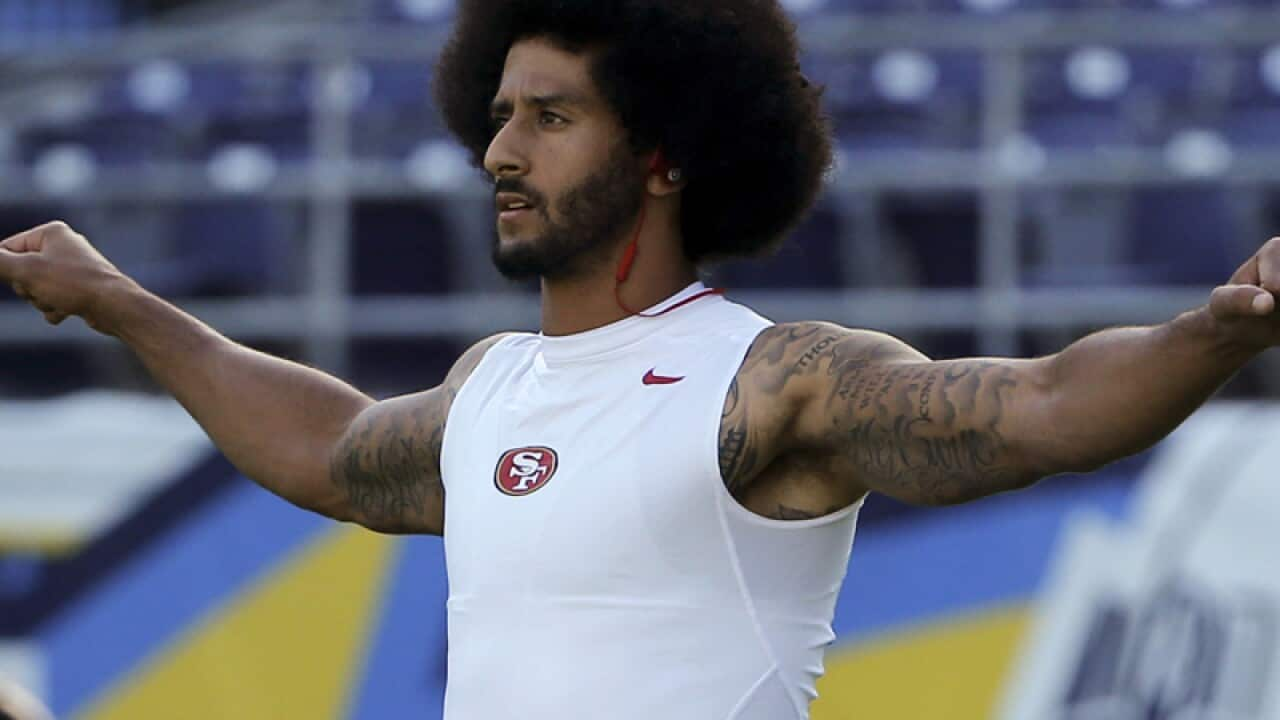Compare belting out the national anthem for a dose of egoistic pride boost, to sitting it out so human life is protected. There shouldn’t be a single argument on what matters more.
All we achieved by singing the national anthem on grand final day was to superficially reinforce a misguided notion of identity, while wiping away the potential for a cultural-shifting platform to debate a critical issue facing our nation.
#blacklivesmatter
I attended two matches during the AFL finals series. Both times I stood up and sang Advance Australia Fair loud and proud with my daughter. If I had been able to secure tickets to the Grand Final however, I would have remained seated and silent.
I’m comfortable enough with the love I have for my country that I don’t need to prove it through the anthem. In fact, what Australia taught me by giving my family a new home away from the war two decades ago is caring for others. The message behind the silent protest was precisely about this wonderful quality.
A true blue Aussie would stand up for fellow citizens and their human rights. Those of us lucky enough to have access to grand final tickets or screens to watch the game in peace should be grateful, not spiteful. We are a fortunate bunch. Yet right in our own backyard, fellow human beings are not.
Are we that arrogant to say the national anthem is more important than a people’s welfare?
Rejecting to stand up for the national anthem doesn’t mean rejecting your identity. Symbolically, the louder we belted out the lyrics, the more muffled the cries from the Indigenous communities became.
Perhaps we didn’t want to listen to the substance behind boycotting the anthem. It made us uncomfortable. And we’re way too comfortable for that kind of reality check.
Anthony Mundine hurled a rock into our cosy cocoon. The bubble popped and all the racist goo surfaced. Again.
He was swiftly eviscerated by the offended. Reportage on the event was served as we’ve come to expect: a buffet of outrage, shock, scandal, and every other one–dimensional news coverage tactic, including the [sic] placed on Mundine’s tweet, as if his patois is really the quandarie.
The problem is not the national anthem. The problem is not that we love our country’s song. The problem is that Australia is still handicapped when it comes to facing its history. The mere mention of the existence of a problem within Indigenous communities rattles commentators.
I was disappointed, though not surprised, to read almost every article written about the incident vehemently criticised Mundine. Some even slyly published comments made by Indigenous folk opposing his call, as if to say: “Look! It’s not just Pale McWhite saying you’re an idiot, it’s your people too!”
It’s unfathomable how those opposed can’t see their outrage highlights the very problem Mundine was trying to shed light on. The fact that we attack a man standing up for the oppressed with such vitriol emphasises our ignorance towards the native people’s struggles.
What are the people against this peaceful resistance afraid of? I mean, even if everyone at the MCG collectively protested during the anthem, would that have suddenly led to the fall of our nation? Just chill.
Sadly, what ended up being addressed wasn’t what the champion boxer had championed. We were left with a circus of commentators parading the usual tricks of misdirection, tactfully avoiding the real issue.
It reminds me of the Adam Goodes saga and Eddie’s fear of an invisible spear. What is to be feared is our insidious tolerance for racist behaviour in the name of patriotism.
The only question remaining is, will we clean up the goo or wrap it in another pretty cocoon and pretend all is well in the land girt by sea?
Osamah Sami is an award-winning actor, writer, poet and comedian. His book 'Good Muslim Boy' is currently being adapted into a film.




